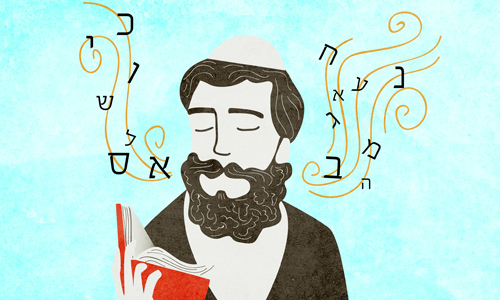I miss my community.
For two weeks, my Shabbat has not felt the same. And truth be told, even Fridays have not been the same. So much of what I used to do revolved around my community. Preparing the tasty (may I say legendary?) cholent on Friday. Working with my wife to get everything ready and in place at home and in the synagogue. Thinking about what message I wanted to share during the service. Learning the weekly Torah portion.
And then, on Shabbat, warmly greeting those who came to pray with us. Many of them were regulars. Others were visitors who came to our community to spend Shabbat with loved ones who were hospitalized at the Hackensack hospital or at other local rehabilitation centers.
It was just so nice to be together.
After services—the kiddush! It wasn’t about the food, although the food was great. Just the feeling of us sitting around the table, chatting, singing, sharing stories and ideas from the Torah. It felt so nice, and I sorely miss it.
Yet, I won’t be doing our Shabbat services over Zoom.
Why not?
Because as you most probably know, during the 25 hours of Shabbat, I follow the mitzvah of refraining from all kinds of creative work, including using any electronic devices. So no phone, no computer, no screens (and no turning lights on or off).
Thinking about it today, it dawned on me that there is something very special about spending Shabbat without my community, in the time of coronavirus.
I think that we are increasingly defining ourselves as members of groups, and to some degree, losing our individuality.
We categorize ourselves as fans of this or that sports team.
Political groups.
Instagram followers.
Think about it. So many things in our lives are about our shared hobbies, shared interests, shared practices.
But there is so much more to you and me than the party we vote for, the NFL team we root for, the type of music we like.
There is the singular you. The personal I. The unique, individual self, created in the image of the unique Creator.
And so, on Shabbat, while we temporarily lose the communal connection, we can also gain the individual connection with G‑d.
Yes, you can pray to G‑d, on your own. Without a cantor. Without a rabbi. Without your fellow congregants sitting next to you.
This is not ideal, but if G‑d placed us in these circumstances, this is what He wants from us right now.
G‑d cherishes you and me not only because of “us” but because of our individuality. G‑d craves a relationship with us on a very personal level.
I hope and pray that this period will end soon. But when it does, may we keep this message in our hearts.



